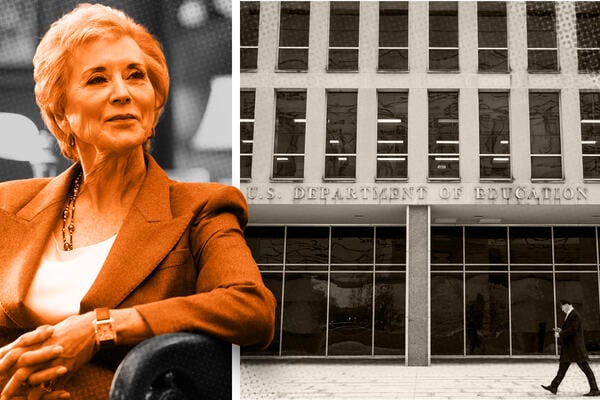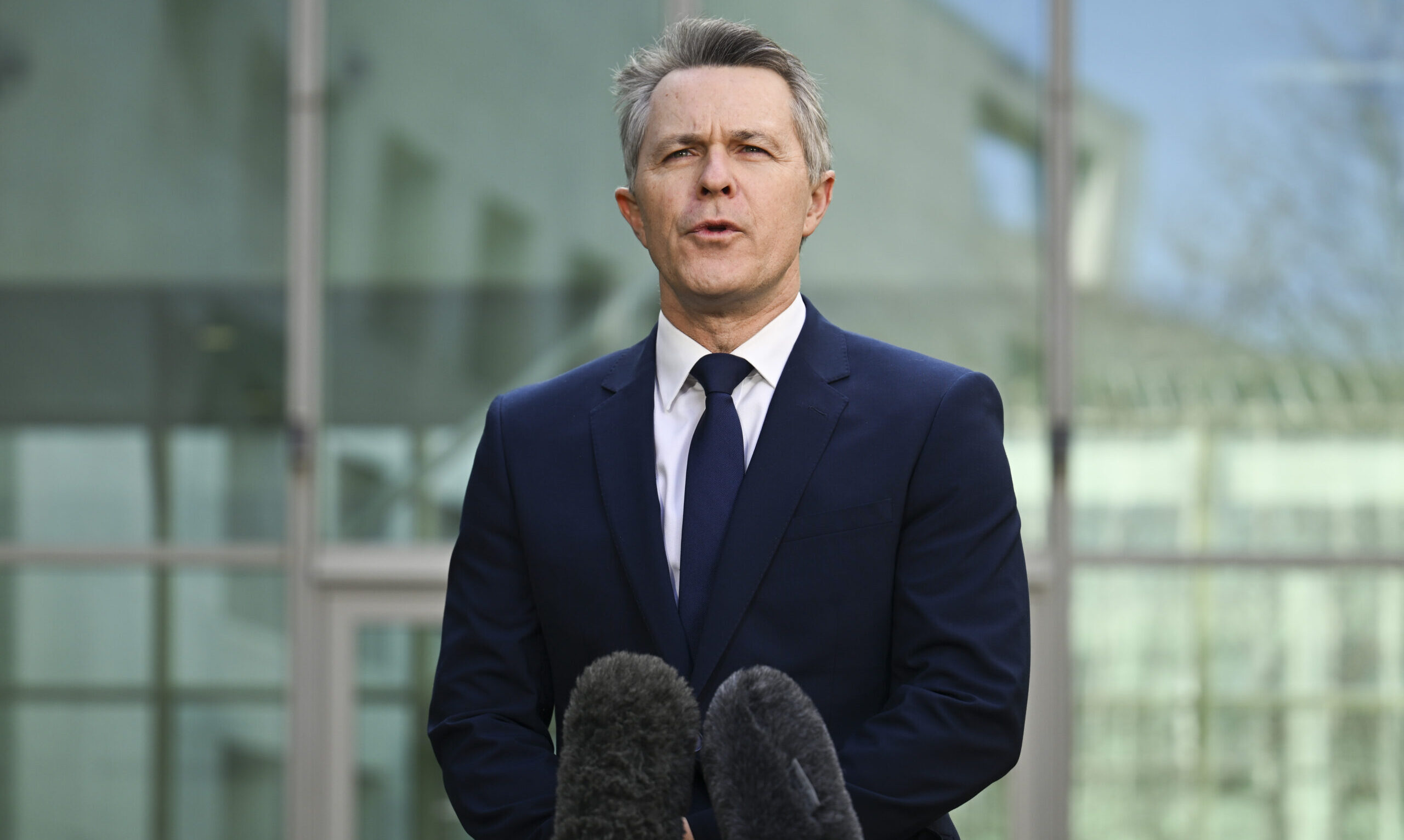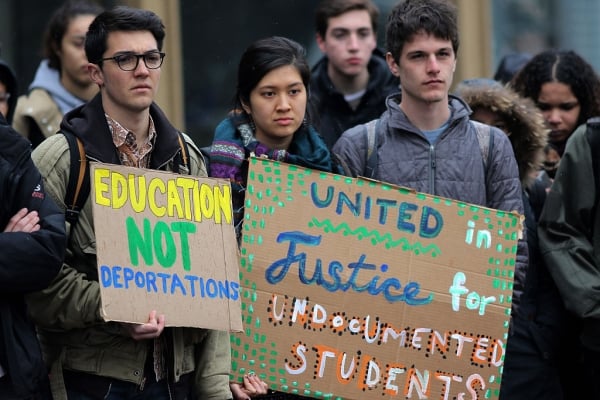Advocates for undocumented students have their hands full as they prepare for President-elect Donald Trump to take office later this month.
They’re fielding questions from nervous students fearful of Trump’s promises of mass deportations and advising college staff members seeking to support these students within legal bounds. But then, the Biden administration dropped a fresh disappointment on top of their heaping pile of concerns when it pulled back on a proposal to make undocumented students eligible for some TRIO programs.
The decision—tucked into a set of finalized rules released at the end of the year—was met with mixed emotions from advocates who have long pushed to give undocumented students access to the federal college prep programs designed to help disadvantaged students enroll and persist in college. Some mourned the chance to secure a win for undocumented students before Trump took office. Others saw the decision as a painful but pragmatic response to the incoming administration, which may have barred undocumented students from these programs anyway or penalized TRIO programs for serving them. Proponents of the dead proposal expect it’ll be years before the opportunity to open up these programs presents itself again.
Magin Sanchez, higher education policy analyst at UnidosUS, a Latino civil rights organization, said undocumented students would have a lot to gain from TRIO programs, given that they already face major hurdles to enrolling in college, like a lack of access to federal financial aid. He believes the extra academic support and college counseling these programs offer could put these students on a more level playing field with their peers.
“Higher education is one of the surest pathways to economic mobility and prosperity,” Sanchez said. “There are significant barriers for this population, students that just want to have access to a better life, like any college student.”
A former board member at the Council for Opportunity in Education told Inside Higher Ed that they didn’t know how to feel about the Biden administration’s decision. The organization, which supports low-income and first-generation students and students with disabilities, was among those that pushed for the change.
“With the new administration coming in, we want to do everything to protect our students, so in that sense, I kind of understood why,” said the former board member, who asked to remain anonymous in order to avoid speaking for their current employer. “My other reaction was, man, we’re doing this again? We’re bringing up students’ hopes again? We bring up their hopes only to shoot them down again and again.”
What Happened
The Education Department initially proposed that noncitizen students be eligible for three TRIO programs—Upward Bound, Talent Search and Educational Opportunity Centers—if students enrolled in or planned to enroll in high schools in the United States, its territories or Freely Associated States and met other eligibility criteria. Those programs were selected because they serve students in public K-12 schools, which are open to all students, regardless of immigration status.
But in finalized rules released Dec. 30, the department decided against it.
Department officials wrote that, after reviewing public comment, they believed the proposal was “too narrow,” because it didn’t include the Student Support Services program, which offers academic support to college students, or the McNair Scholars program, which prepares students for graduate education. Officials also concluded that opening only some programs to undocumented students would “cause confusion” and “increase administrative burden.”
Department officials also argued that the Higher Education Act, the federal law that governs how federal higher ed programs are administered, doesn’t explicitly bar noncitizens from participating in TRIO programs.
So, the department scrapped the proposal altogether “to reconsider how best to ensure that the TRIO programs are able to reach all populations of disadvantaged students, irrespective of immigration status,” officials wrote.
Pushback, Parsing and Planning
Some advocates don’t buy the department’s explanations.
The former COE board member said TRIO directors already have to parse regulatory differences between different programs, so the idea that opening up only some programs to undocumented students would prove too confusing “didn’t fly too well with me.”
“I get it, it’s a political explanation, but at the same time, it doesn’t help the community with that messaging,” they said.
Jon Fansmith, senior vice president for government relations and national engagement at the American Council on Education, said as far as he’s concerned, “This really seems like a classic case of elections have consequences. Had we been talking about an incoming Harris administration, I don’t know that the department would have pulled back the regulation.”
At the same time, the Biden administration seems to have left the door open a crack. The language of the finalized rules implies TRIO directors could interpret the Higher Education Act as not explicitly forbidding undocumented students from participating in TRIO programs.
“I think you can certainly read that as offering up an interpretation of existing statute that might provide some flexibility—certainly the idea that if it’s not delineated, that doesn’t necessarily preclude it,” Fansmith said. So, the Biden administration may be “indicating where schools could go, but frankly, stopping short of something they know would be quickly reversed by the incoming administration.” Still, that’s “certainly not as clear as formally regulating on it.”
Now in a gray area, it remains to be seen whether TRIO directors will use that latitude to serve students regardless of citizenship or if they’ll continue to bar undocumented students, given the Trump administration is unlikely to interpret the law in this way. Their choices could prove risky. A year ago, some school and college administrators were already worried that, if undocumented students were granted access to these programs, TRIO programs could face Republican backlash and funding cuts. This summer, six Republicans in Congress, including former chair of the House education committee Virginia Foxx, opposed the proposal in a letter to Education Secretary Miguel Cardona.
Education department officials wrote in the finalized rules that the department “may reconsider TRIO student eligibility through future rulemaking efforts.” But the proposal’s proponents believe there’s a slim to none chance of that during Trump’s term, given his rhetoric against undocumented immigrants.
“We’re going to have to wait at least four years again,” Fansmith said.
Nonetheless, some remain hopeful that undocumented students will benefit from TRIO programs in the future. Sanchez said he still thinks it’s going to happen, even if this “window of opportunity” has passed.
“We’ll keep fighting,” Sanchez said. “We’ll keep advocating, because we may not have gotten it right now, but we’ll get it eventually.”




